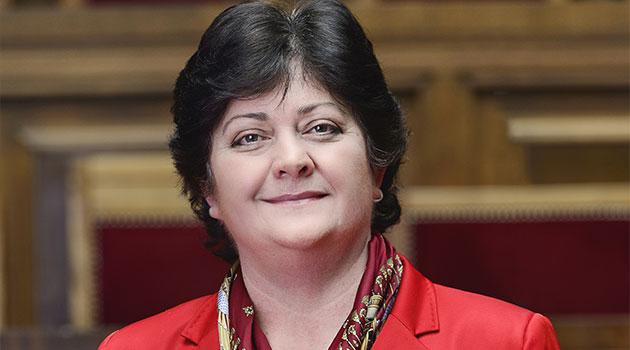Slovak Govt Plenipotentiary for the Roma Community says biased media coverage of animal abuse could spark anti-Romani hatred

Some Czech and Slovak media outlets have been gradually raising the subject of the alleged abuse of animals in Romani settlements in Slovakia. Andrea Bučková, the Slovak Government Plenipotentiary for the Roma Community, rejects the idea that the problem of animal abuse, which happens across society, should be ascribed to one ethnic group.
“I condemn all behavior that leads to the abuse of animals. Those who commit such crimes must be held accountable for them,” she has written in a statement, adding that cases of animal abuse deserve our attention.
At the same time, however, she rejects the idea of this society-wide problem being ascribed to one ethnic group. In her view, the problem exists in different social groups and strata, which has been confirmed to her by the Slovak ombudsperson for animal welfare, Zuzana Stanová, when they recently met.
“I consider the way this subject is being presented in public and in the media space to be dangerous and harmful. Intentional publicity referencing the illegal raising and abuse of animals in Romani communities sparks and intensifies hateful reactions, stigmatizes the Romani population, and especially deforms our understanding of the scope of this entire problem of animal abuse by one-sidedly ascribing it to people living in concentrated poverty,” Bučková’s statement reads.
The Office of the Plenipotentiary for the Roma Community has long been addressing the impoverishment and living conditions of the inhabitants of Romain communities and dedicates itself to the fields of housing, education, employment and preventive health care as priorities. As for animal abuse, that agenda falls within the competence of the criminal justice authorities or local authorities first and foremost.
Municipal self-governments have the competencies to regulate the conditions for the breeding and care of pets. The Office of the Plenipotentiary for the Roma Community has also gotten involved in addressing this issue.
“In recent years, the office has actively collaborated with and communicated with representatives of local authorities, with umbrella organizations such as the Association of Towns and Villages or the Union of Cities of Slovakia, as well as with the materially relevant ministry,” Bučková has reported, adding that she has also held meetings about the option of subsidizing local authorities that want to undertake the neutering of dogs whose owners are unknown. Those meetings also touched on setting up the necessary animal shelters.
According to Ivan Kantor, head of the Municipal Authority in Sečovce, the dogs in the Romani settlement are those that have been abandoned by their owners in town. “When people throw their animals out on the street, our Romani fellow citizens take them in. They do that on their own, if you take a walk around the settlement you notice that there are some very nice breeds of dogs living there, and they are not undernourished – I’m not claiming that no such dogs can be found here, but the Romani people are taking care of these dogs and keeping an eye on them,” Kantor said in a video released by the Office of the Slovak Government Plenipotentiary for the Roma Community.
